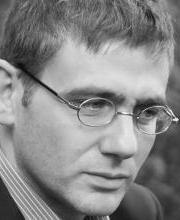Prof. Bruno Chaouat

Bruno Chaouat received his PhD in French literature from Emory University. Since 2002, he has been teaching in the Department of French and Italian, as well as in the Center for Jewish Studies, at the University of Minnesota. He has been the director of the Center for Holocaust and Genocide Studies at the University of Minnesota, and Chair of the Department of French and Italian. He is also a Honorary Fellow at the Center for the Study of Jewish Culture, Society and Politics, Durham University, UK, and Chevalier dans l’Ordre des Palmes Académiques.
After publishing on the French romantic writer Francois-René de Chateaubriand, and especially on the question of autobiography, experience and death (Je meurs par morceaux. Chateaubriand, Presses Universitaires du Septentrion, 1999), he focussed his research on testimony and Holocaust studies. He has published numerous articles in France and the US on authors such as Jorge Semprun, Robert Antelme, Marguerite Duras, Patrick Modiano, Jean Genet, Richard Millet, Albert Memmi, etc.
He has edited several volumes and conference proceedings (Penser la terreur, 2009; Lire, écrire la honte, 2003). He also dedicated a book to French thought in the aftermath of the Cold War (L’Ombre pour la proie, 2012). More recently he published a book on French responses to the resurgence of antisemitism, and the relations between postmodern thought and those responses (Is Theory Good for the Jews? French Thought and the Challenge of the New Antisemitism, Liverpool University Press, 2016). He is currently working on several different projects, among which a book on the return of ancient Gnostic themes in French modern literature and philosophy in the long 20th century (Anywhere Out of the World: Gnostic Sparks in Modern French Literature and Thought). He is currently working on several articles and chapters on this question--one on Louis-Ferdinand Céline and Emmanuel Levinas, one on Georges Bataille, one on Maurice Blanchot.

